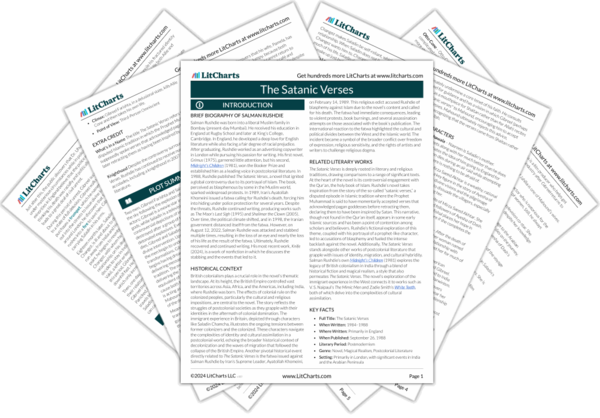The execution of Baal and the 12 sex workers does not extinguish the spirit of rebellion. Even in death, Baal’s irreverence haunts Mahound, reflecting the limits of authoritarian power. Hind’s celebration of Mahound’s impending death serves as a reminder that power is never absolute and that resistance, whether through satire or witchcraft, persists. The vision of Al-Lat as Mahound dies further complicates the narrative, suggesting that the divine and the demonic are intertwined and that every act of destruction carries within it the seeds of its own undoing. This suggestion—and the depiction of Mahound in general as a tyrant—is Rushdie’s most controversial statement in the novel. Like the poet Baal, he is speaking against an entire religion, a decision which lead to dire consequences in Rushdie’s real life.
